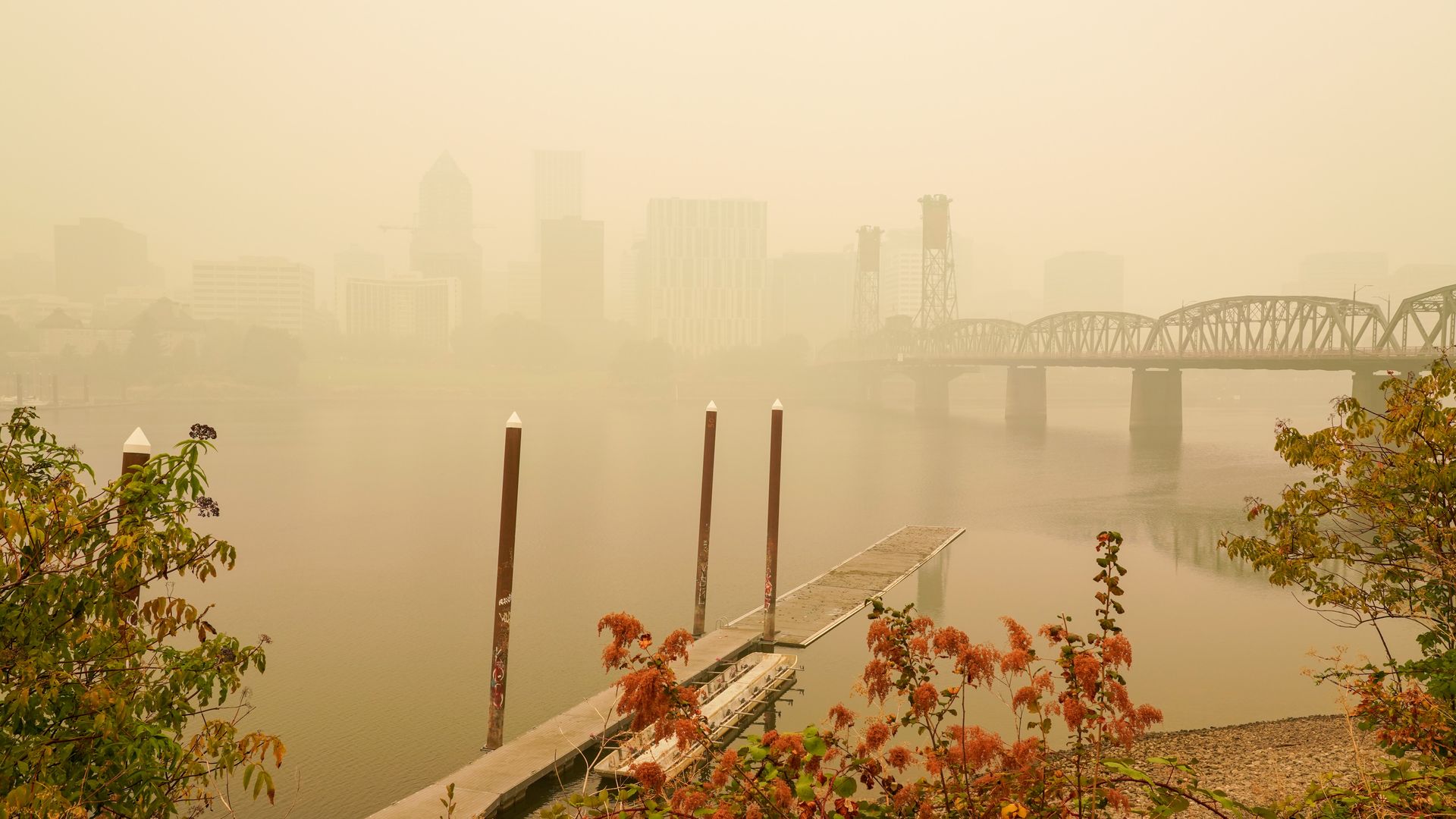Record Oregon heat creates fuel for wildfires
Add Axios as your preferred source to
see more of our stories on Google.

Remember this? Photo: Rebecca Smeyne/Bloomberg via Getty Images
May is Wildfire Preparedness Month, and in recent years, Oregon has seen a significant increase in the size of wildfires.
Why it matters: In part due to climate change, wildfire season across the West Coast has become longer, hotter and drier, resulting in devastating damage to public land and private property.
Driving the news: Areas that have been impacted by prolonged drought, like parts of central and eastern Oregon, as well as central Washington, are predicted to have an "above normal" wildfire risk in July and August, according to the National Interagency Fire Center.
- The latest: Despite the ample rain and snow some parts of Oregon experienced this past winter, last week's record-breaking heat means some vegetation — like pine needles, grass and fallen leaves — has already dried out, creating fuel for future wildfires, according to Alison Green, a spokesperson for Office of the State Fire Marshal.
Be smart: While it's not common for wildfires to enter city limits, Portlanders are still deeply impacted by poor air quality caused by regional wildfires.
- In 2020, when the city's sky turned orange and hazy due to the Lionshead and Riverside fires, the air quality index (AQI) reading was literally off-the-charts hazardous — peaking at 516.
- When the AQI is above 300, the air quality is considered "very unhealthy" and can cause headaches, irritate the eyes and throat, and worsen symptoms for those with asthma.
What they're saying: "Air quality for the state, across the board, has definitely become at the forefront of folks' minds in the past years," Green told Axios, recommending that residents turn on their HVAC systems, if they have them, and stay inside if it's really smoky out.
- "If you do have to go outside, don't be doing something that is super heavy on your cardiovascular system," she said.
Pro tips: One of the first things you can do to prepare for wildfire season is create an evacuation plan, Green said. Packing a to-go bag is also necessary for those living in high-risk areas.
- To prepare an evacuation plan, consider where the closest shelter would be (a public library, convention center, school, etc.), your evacuation route, and a family communication plan.
- According to the Red Cross, a basic go-kit should consist of water, non-perishable food, flashlights, batteries, first aid kit, medications, cell phone chargers, personal hygiene items and copies of personal documents.
- For the rest of us city dwellers, maintaining your home's "defensible space" is key. Cleaning out gutters, raking leaves and watering plants are all ways to ensure rogue embers from surrounding wildfires don't ignite in your backyard.
The bottom line: Green said the first thing Oregonians should do to prepare for wildfires is sign up for emergency alerts at oralert.gov.
